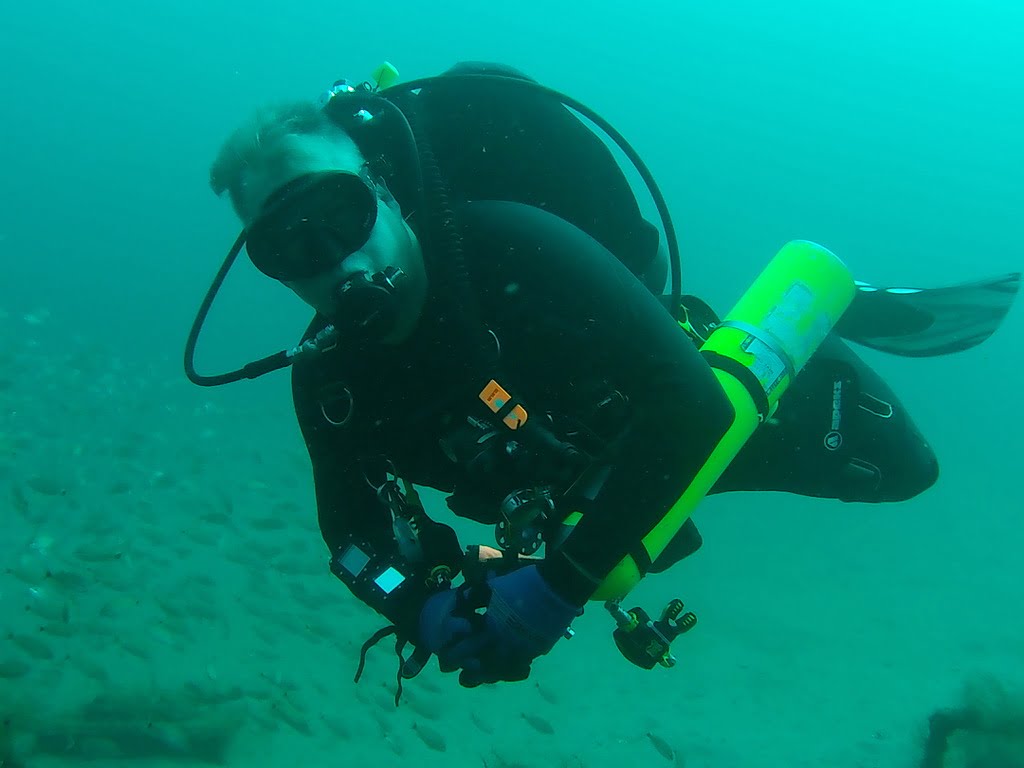
At one point or another, many divers have found themselves alone during a dive, whether it was intentional or not. Solo Diving is the practice of self-reliant scuba diving without a “dive buddy. ”Solo diving” is now seen by many experienced divers & some certification agencies as an acceptable practice for those divers suitably trained & experienced. Rather than relying on the traditional buddy diving safety system, “solo divers” should be skilled in self-sufficiency and willing to take responsibility for their own safety while diving.
The solo diver course is one of the most challenging recreational courses you can take. Your instructor will challenge you with no mask swims, recording your SAC rate, affixing spare gas sources, general dive planning and pre-dive preparation. Whether you want to dive alone or just want to be better prepared for diving with others (especially your family, children or less experienced divers), the goal of this class is to make a diver completely self sufficient, for themselves and others.
Who this class is for:
Our Solo Diver certification class fee includes:
$399.00
Please check our online calendar for a scheduled class before purchasing. You may be able to join an already scheduled course.
This class includes your online e-learning material, 2 in-water training sessions with a certified instructor, your certification card (C-Card) and the skills to handle situations when your buddy is not there or cannot assist you.
Solo diver certification prerequisites:
Gear requirements:
Class requirements:
Time requirements:
Your virtual local Raleigh dive shop serving the Cary, Apex, Durham, Chapel Hill, Garner, Clayton & surrounding areas.
1041 Investment Blvd | Suite 151
Apex, NC 27502